With Thai PM Prayut switching parties, his deputy looks to lead ruling Palang Pracharat to election victory
Thailand’s election on May 14 could see an end to nine years of government either led or backed by the military, since it overthrew an elected government in 2014.
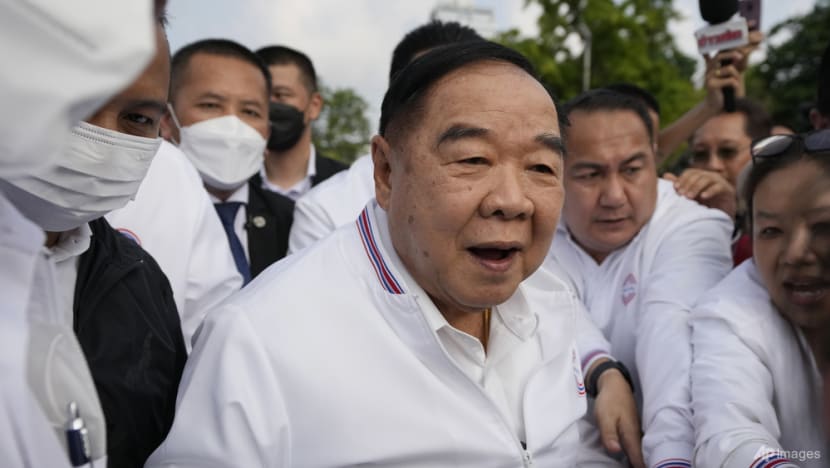
BANGKOK: The main party of Thailand's outgoing ruling coalition has an eye on leading the next government, despite heading into the polls without the incumbent prime minister.
The Palang Pracharat Party (PPRP) had put up General Prayut Chan-o-cha for the country's top job following the 2014 military coup but this time round, it has chosen its party leader, Deputy Prime Minister Prawit Wongsuwan.
Thailand’s election on May 14 could see an end to nine years of government either led or backed by the military, since it overthrew an elected government in 2014.
The PPRP was originally created for the then-military government to compete in the last elections four years ago.
Experts said that while no efforts to undermine the election is expected on polling day, what happens in the period that follows should be closely watched, such as the response of the military to the new government’s policies.
RIVALRY BETWEEN FACTIONS
In the months leading up to this year’s election, tensions between factions in the party boiled over, and the two leaders went their separate ways.
PM Prayut is now running under the banner of the United Thai Nation Party (UTN).
But the change at the top of the PPRP has not altered the way it is seen to operate, continuing the old habits of Thai politics, where it is less about political ideology and more about the consolidation of power.
To garner support, it is crucial for the political parties to go out of the capital of Bangkok and reach into the heartlands.
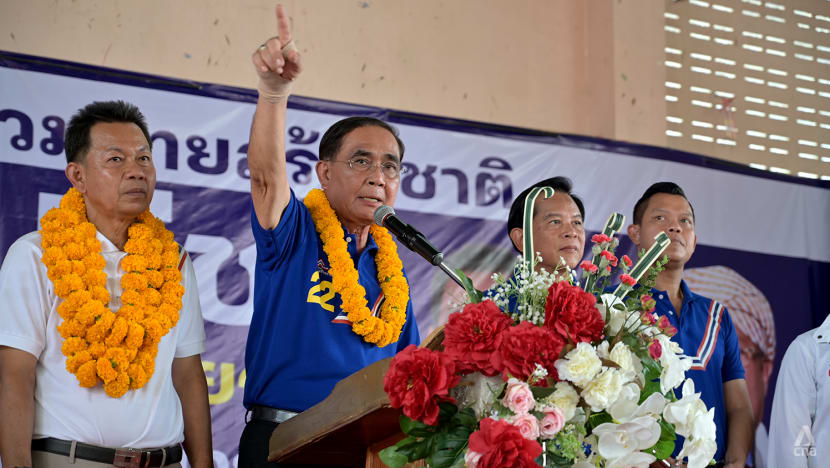
Listen: Can the Thai prime minister hold on to power in the upcoming elections?
Since most political parties like the PPRP have not been around long enough to establish local support bases, they are tapping into existing networks run by influential local community figures.
TAPPING ON LOCAL NETWORKS
ISEAS Yusof Ishak Institute visiting fellow Napon Jatusripitak told CNA that “candidates are backed by local patronage networks” and those who come from “political families” have an upper hand.
“Typically, some of the strategies also involve giving out favours, material goods, cash and other types of services that are not required by law and are not part of the job description of Members of Parliament,” he said.
“And that's why you see a lot of candidates building these large networks, pyramid-like and web-like networks of canvassers.”
Among the MP hopefuls is Ratsapha Nopaket, a first-time candidate for the PPRP in Chachoengsao Province, about a three-hour drive away from Bangkok.
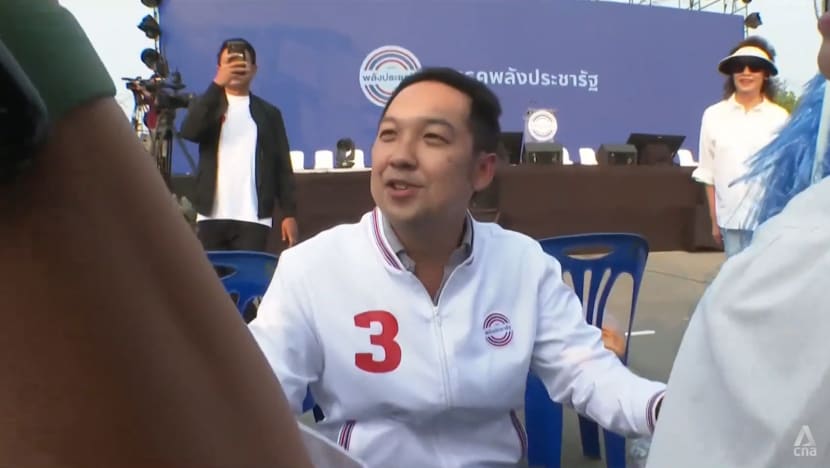
He is no stranger to politics, coming from a long family line of village heads, a position that oversees several communities at the grassroots level.
“In rural areas, local leaders have a lot of influence on their local communities. Since it’s very tight-knit, there’s a lot of respect for their leaders,” he said.
Mr Ratsapha said he wants to help the people by raising their issues to the higher authorities, and also “work with all sides”.
REBRANDING IMAGE
That desire to work with everyone is a core message of PPRP leader Prawit, who is positioning himself as the one who can finally bring reconciliation after decades of political polarisation in the country.
“I may not be great at speeches, but I’m good at my job and have capable people on board to overcome divisions, in order to bring peace and prosperity to the country and the people,” he said at a rally in Chachoengsao Province recently.
It is all part of a wider rebranding effort by the party to make the 76-year-old leader appear like a gentle and generous elder who watches over everyone, instead of being seen as just an extension of the previous military government.
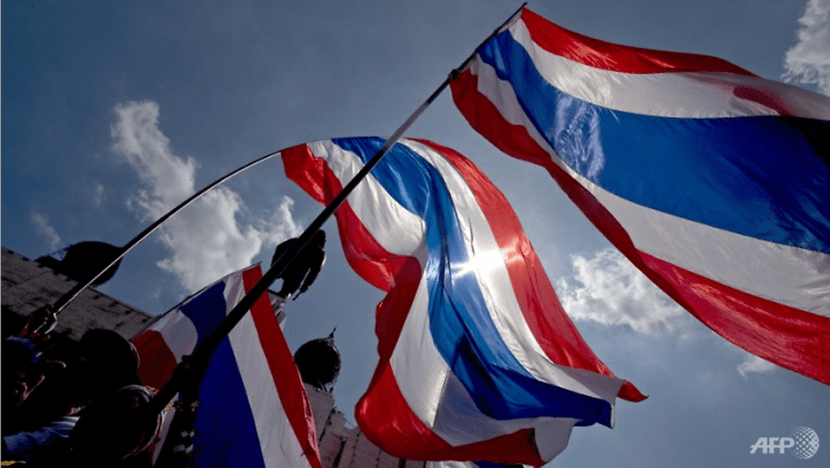
However, the PPRP’s proposed policies are a continuation of various government welfare schemes, including cash handouts for the pregnant and elderly.
It is trying to claim most achievements of the past government as theirs and not the doing of PM Prayut, though it remains doubtful whether this will be enough for voters as they trail behind opposition parties in opinion polls.
CHANCES IN THE ELECTION
The upcoming electoral contest will be a competition between the country’s conservative bloc, comprising current government parties like PPRP, the Democrat Party and PM Prayut’s UTN, and the liberal progressive bloc represented by opposition parties like Pheu Thai and Move Forward, said Mr Jay Harriman, senior director of BowerGroupAsia.
Pheu Thai is led by Ms Paetongtarn Shinawatra, whose father Thaksin was ousted by a military coup in 2006, and her aunt Yingluck in a similar manner in 2014.
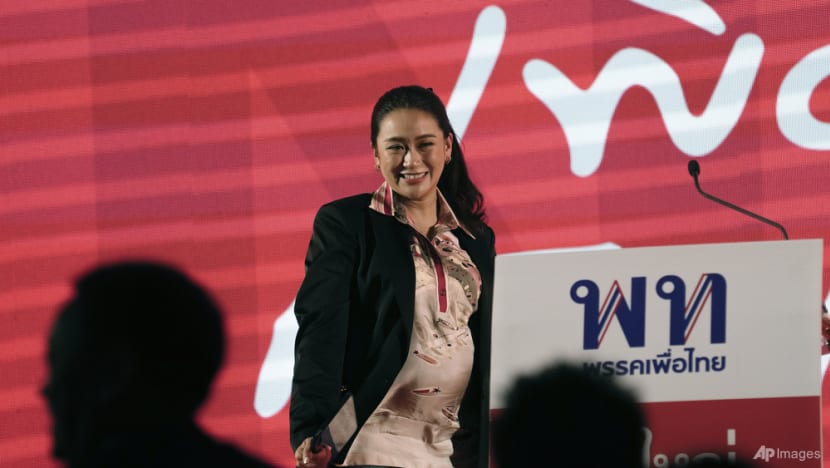
“As for Prime Minister Prayut’s chances of winning the election, they are, I would say, increasingly coming into question as the latest polls seem to indicate that there's going to be a strong showing from Pheu Thai as well as Move Forward,” Mr Harriman told CNA’s Asia First on Monday.
However, he noted that PM Prayut has the “advantages of incumbency”.
The 250-seat Senate was not elected, but instead appointed by the previous military government, led by current PM Prayut, for a five-year term ending in mid-2024.
The body plays a key role in determining the future prime minister, as it makes the decision jointly with the House of Representatives.
“I think the people that support him will continue to support him,” said Mr Harriman, on Mr Prayut’s chances in the election after switching parties.
“I think what will impact his party and chances in the election is the fact that there will now be some vote splitting that will occur within the conservative block,” he said, adding that it could have a substantial impact on results, especially in districts where the margin was quite tight in the last contest.
ATTEMPTS TO UNDERMINE THE ELECTION
While Mr Harriman does not expect any incidents of violence or attempts to undermine the election on polling day itself, he noted that it remains to be seen what happens in the period after the election.
“Either it will come from the Election Commission that may issue yellow and red cards for candidates (or) the courts that may eject or dissolve political parties, which could then impact the vote total and whether the opposition can maintain its majority in the House of Representatives,” he said.
He added that the military will wait and see the new government’s initial policies before deciding what steps to take.
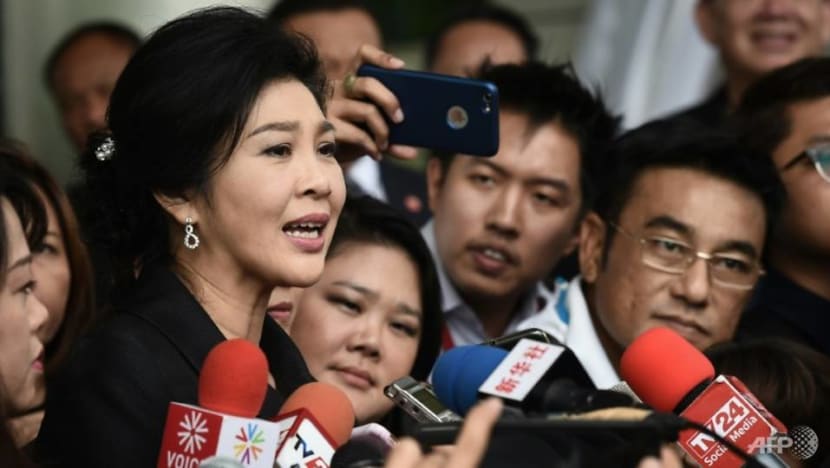
“However, I think that there could be a response from the military (and) an increased risk of political instability if the conservative bloc loses, and it begins to feel that the new government is moving too aggressively on existential issues such as reforms to the military and the monarchy,” noted Mr Harriman.
In such a situation, the military could launch “a counter-offensive” to unseat the government by using the courts and state agencies to dissolve political parties, or even launch a coup, he said.
There have been 13 successful military coups in Thailand’s history, with the most recent one taking place in 2014.
















